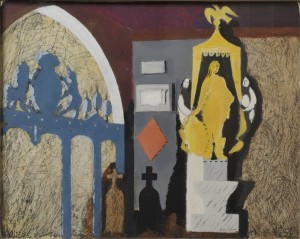Wills can be both fascinating and frustrating, for what they say, what or who they miss out and what they may be hinting at! A collection of wills for a single community like Lydiard Tregoze provides information which is useful to local, family and social historians. This collection highlights 8 of the 47 Lydiard Tregoze wills contained in The Lydiard Archives which help to establish a picture of the wider community and how people came together across all groups of society, rich and poor.
In these wills, as well as family members, we may find servants, friends and associates. Unsurprisingly, the St.Johns as lords of the manor also appear. Where there are several wills for members of the same family it can be possible to create a family tree over several generations, for example, the Clerkes. The will of mother and son provides the extended family not only within Lydiard Tregoze but beyond into Oxfordshire.
Testators generally refer to their last will and testament. The testament dealt with bequests of goods and chattels, gave instruction for burial and ensured debts were paid. Wills were concerned only with land. Testaments fell under the jurisdiction of the church and were proved in church courts. Wills, because they dealt with land are therefore often missing as they were not submitted for probate, falling outside the jurisdiction of the church - although by the fifteenth century, this distinction was starting to be lost.
The majority of wills and testaments were made by men, as this collection shows. Married women could only leave their personal possessions, and then only with their husband’s permission. Widows and spinsters however, had more freedom in making their last will and testament.
Our featured wills cover four centuries for which wills have been found; the earliest will in English, that of Robert Wells, hints at the wider politics of the time. Mary was the first queen in her own right, but she chose to marry a foreign king and there were possible implications for English sovereignty. The will reminds us that the national story is also important when trying to find the local one. As we move forward in time, we can also see changes in religion which are reflected in the arrangements for the care of the testator’s soul.
The will of Elizabeth Wells, in leaving bequests to her granddaughters suggests the age at which girls were expected to marry, while John Halston’s suggests we should not jump too quickly to a conclusion about where a will may be found based on occupation or status. As a husbandman it might be easy to conclude that if he did make a will, it would have been proved in the archdeacon’s court, but his cows kept at Highworth made a difference to the rules of probate, and his executors had to make the journey to London to prove the will in the Prerogative Court of Canterbury.


